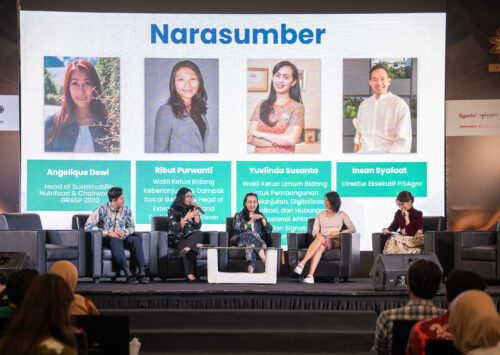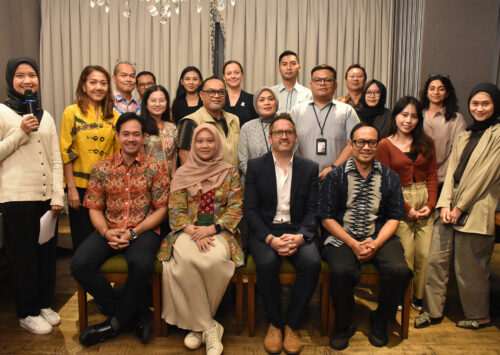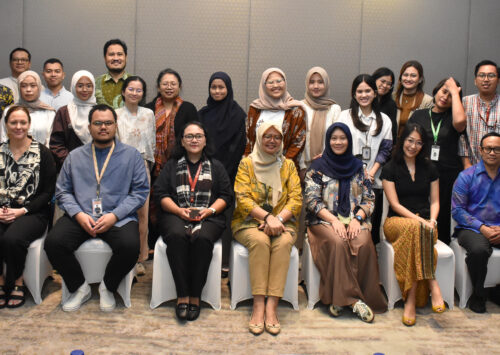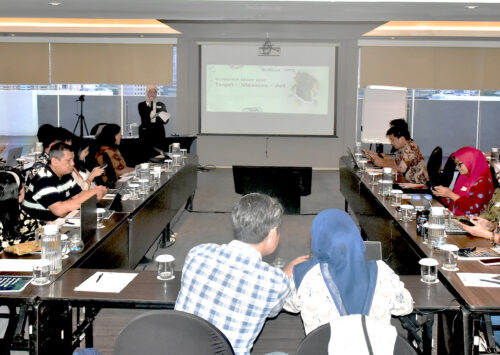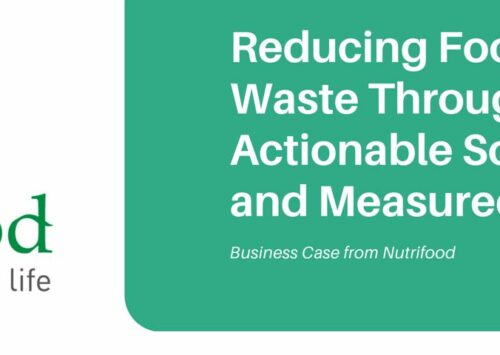The Indonesia Business Council for Sustainable Development (IBCSD) together with the Center for Transdisciplinary and Sustainability Science (CTSS) IPB University held a webinar with the theme “Tackling Food Loss and Waste, Driving Transformation through Innovation and Collaboration” which is part of T20 (Think 20) side event. This activity aims to facilitate the exchange of ideas and experiences on multi-stakeholder collaboration by bringing innovation and technology that can be a better, more appropriate, and efficient solution in reducing the problem of shrinkage and food waste.
In Indonesia, the Food Loss and Waste (FLW) study reports that we dispose of 23-48 million tons of food waste per year in the period 2000-2019 which emits around 82.26 Mton CO2eq per year or 7.29% of the total Greenhouse Gas emissions. Indonesia. This is equivalent to an economic loss of 213-551 Trillion Rupiah/year or the equivalent of 4-5% of Indonesia’s GDP (BAPPENAS, 2021).
The G20 Indonesia presidency carries the theme “Recover Together, Recover Stronger”. To achieve a stronger economic recovery, the G20 has prioritized several agendas, such as emphasizing digital transformation and including sustainable financing, which will also help accelerate food loss and waste (FLW) practices in related industries. Meanwhile, the SDGs also set out specific targets on SDG 12.3, namely halving global food waste per capita at retail and consumer levels and reducing food loss along production and supply chains, including post-harvest by 2030.
In his remarks, Ir Medrilzam, Director of the Environment of BAPPENAS conveyed the importance of changing the mindset of all parties from upstream to downstream. Production is not only focused on increasing productivity but also efficiency. In the case of FLW, the public as consumers are encouraged to be wiser in their consumption in order to reduce food wastage. BAPPENAS encourages the G20 and T20 to be used as a momentum for knowledge sharing as well as providing innovative ideas for various policies, both at global and national levels.
In the dialogue, Prof. Dr. Ir. Dominicus S. Priyarsono from IPB University stated that the lack of FLW data in Indonesia implies that there is no awareness and priority in overcoming this problem. Furthermore, he said that in international collaboration, what needs to be encouraged is efforts to reduce food rejection related to quality control and food safety. It is as important as overcoming non-tariff handling barriers and encouraging public and private coordination.
Dr Andriko Notosusanto explained that global food competition was a challenge in itself. In Indonesia, mutual cooperation to overcome FLW is an important thing that needs to be done considering the large amount of food needed with a large population.
Other food waste handling efforts that need to be done include strengthening communication between activists and donors, strengthening Focus Group Discussions for the preparation of regulations, making MoUs with various parties, facilitating food waste reduction, education and database preparation studies so that the reduction target becomes clear.
Another thing that was later conveyed by M Agung Saputra, Managing Director of Surplus Indonesia, was that Surplus was a community that initially combined sustainability and technology with the tagline “Save Food, Save Budget Save Planet” which created an innovative program for entrepreneurs who had leftover food to earn sold at half price. Surplus, which is part of GRASP 2030 Steering Group member, acts as one of the solutions in tackling food waste in Indonesia.
Angelique Dewi, Head of Corporate Communication Division of Nutrifood Indonesia, who is also a member of the GRASP 2030 Steering Group, explained that Nutrifood Indonesia carries out various activities that can adopt the 3 pillars, people profit and planet. Another thing that underlies efforts to reduce food loss and waste is one of them by conducting Food Loss Management in collaboration with 6 foodbanks in Indonesia. She added that reducing food loss and waste needs to pay attention to the health factor of processed food. It is also necessary to jointly educate the public in an effort to reduce food loss. Collaboration can be enhanced through GRASP 2030 that bridges between the private sector and other organizations in overcoming food loss and waste.

